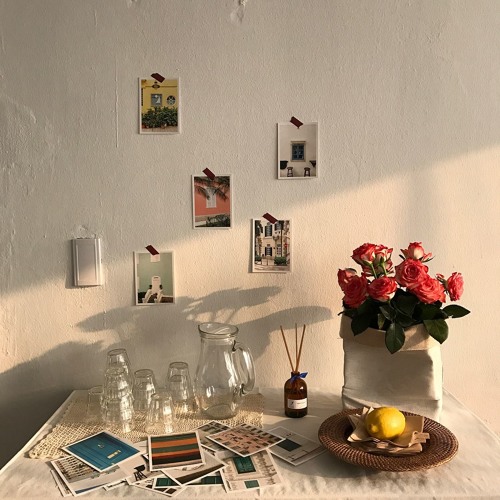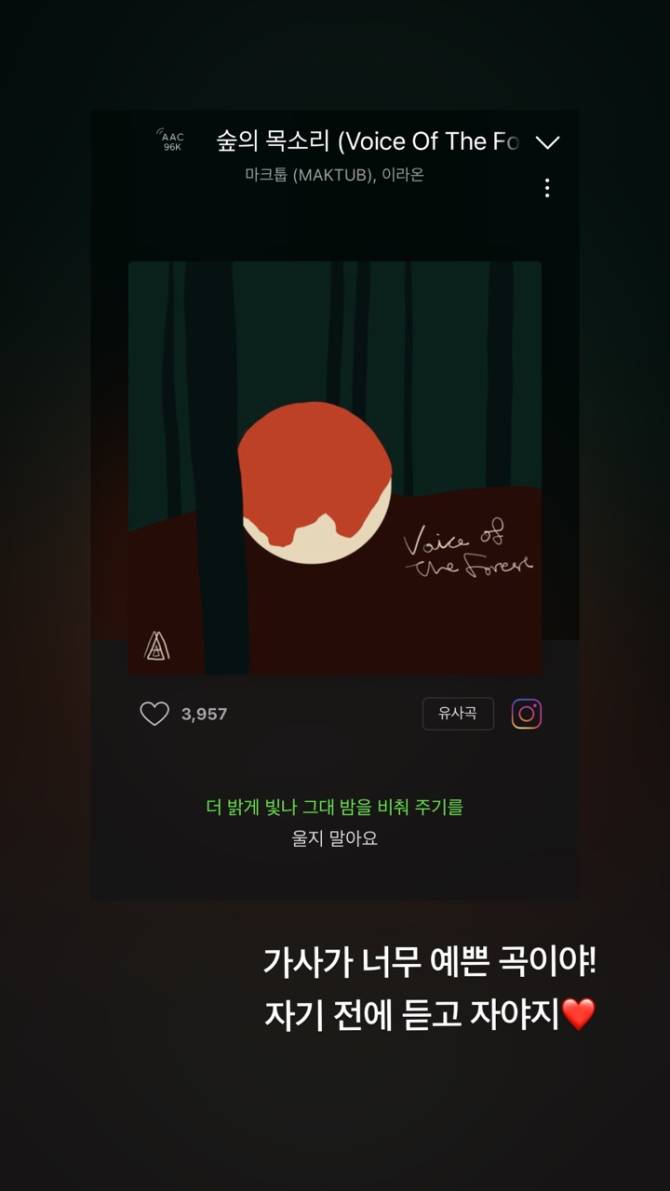너 예뻐
1. 외모에 대한 기준: 예쁨의 다양성과 개인적인 아름다움
외모에 대한 기준은 사회와 문화에 따라 다양합니다. 어떤 문화에서는 키, 얼굴형, 몸매 등이 예쁨의 기준이 될 수 있지만, 다른 문화에서는 피부색, 머리색, 눈의 크기 등이 더 중요한 기준일 수도 있습니다. 이러한 차이로 인해 예쁨의 다양성이 존재하며, 모든 사람들은 자신만의 아름다움을 갖고 있습니다.
2. 자신감과 자아인식: 예쁨과 자아의 상관관계
자신감과 자아인식은 예쁨과 밀접한 관련이 있습니다. 자신감있고 긍정적인 자아인식을 갖는 사람들은 자신의 외모에 대해 더 긍정적인 태도를 가지고 있을 가능성이 큽니다. 예쁨의 기준과 상관없이 자신을 사랑하고 받아들이는 것은 예쁨을 느끼는데 중요한 요소입니다.
3. 사회적 영향: 예쁨이 사회적인 지위와 인간관계에 미치는 영향
사회적으로 예쁨은 종종 경제적, 직장적인 이점을 가져올 수 있습니다. 이는 직장에서의 승진 기회, 인간관계에서의 선호 등으로 나타날 수 있습니다. 그러나 이러한 이점은 예쁨에 가치를 부여하기보다는 예쁨이 사회적인 부당함을 야기할 수 있다는 문제에 대한 주의도 필요합니다.
4. 예쁨의 문화적 차이: 다양한 문화에서 예쁨의 기준과 인식
예쁨의 기준과 인식은 문화에 따라 크게 달라집니다. 한 문화에서는 흰 피부가 아름답고 다른 문화에서는 검은 피부가 아름답다고 여길 수 있습니다. 예쁨의 기준은 역사, 종교, 문화적 변화 등에 의해 영향을 받으며, 다양한 문화 간의 차이로 인해 예쁨의 정의는 상대적입니다.
5. 예쁨과 건강: 예쁨과 건강의 상관관계와 건강 관리의 중요성
예쁨은 건강과 밀접한 관련이 있습니다. 건강한 신체와 피부는 아름답게 보이기 위한 필수적인 요소입니다. 올바른 식습관과 꾸준한 운동은 예쁨과 건강을 동시에 유지하기 위해 중요한 역할을 합니다. 따라서 적절한 건강 관리는 예쁨을 유지하고 개선하는 데 도움이 됩니다.
6. 예쁨에 대한 미디어의 역할: 미디어가 형성하는 예쁨의 기준과 영향
미디어는 사회적 예쁨의 기준을 형성하고 영향을 미칩니다. 언론, 광고, 소셜 미디어 등을 통해 전해지는 외모적 가치는 개인들의 예쁨과 자아인식에 영향을 미칠 수 있습니다. 그러나 이러한 영향은 치유되기 어려운 왜곡된 예쁨 기준을 형성할 가능성도 있으므로, 비판적인 시각을 가져야 합니다.
7. 예쁨과 자기관리: 자기 사랑과 예쁨 유지를 위한 자기관리 방법과 실천 전략
예쁨은 단순히 외모에 초점을 맞추는 것보다는 자기 사랑과 자기 관리의 결과입니다. 긍정적인 자아인식을 갖고 행동하는 것과 올바른 식습관, 운동, 휴식, 스킨케어 등을 조화롭게 실천하는 것은 예쁨을 유지하고 개선하기 위해 필요한 전략입니다.
FAQ
Q: 너무 예뻐의 번역은 무엇인가요?
A: “너무 예뻐”는 한국어에서 영어로 “You’re so beautiful”를 의미합니다.
Q: 너무 예뻐요와 너 예뻐는 무슨 차이가 있나요?
A: “너무 예뻐요”와 “너 예뻐”는 둘 다 ‘당신은 아주 아름다워요’를 의미하지만, 미묘한 차이가 있습니다. “너무 예뻐요”는 좀 더 강조된 형태이며, 감탄사로서 사용될 수 있습니다. “너 예뻐”는 좀 더 자연스러운 표현으로 일상적인 대화에서 사용됩니다.
Q: Google Translate에서 “너 예뻐”를 영어로 어떻게 번역하나요?
A: Google Translate의 번역에 따르면, “너 예뻐”는 영어로 “You’re pretty”로 번역됩니다. 그러나 기계 번역은 항상 정확하지 않을 수 있으므로 주의가 필요합니다.
사용자가 검색한 키워드: 너 예뻐 너무 예뻐 translate, 너무 예뻐 meaning, 너무 예뻐요, Google Translate
Categories: Top 24 너 예뻐
넌 예뻐 You`re Pretty – 정호(JungHo of 2MUCH) [SBS 드라마 닥터스 OST Part.4] [Official Audio]
여기에서 자세히 보기: muadacsan3mien.com
너무 예뻐 translate
너무 예뻐 is a phrase that reflects the admiration and appreciation that Koreans have for beauty. In Korea, there is a strong emphasis on physical appearances, whether it is concerning individuals, objects, or natural landscapes. The concept of beauty in this context goes beyond just aesthetic appeal; it is deeply ingrained in Korean culture and plays a significant role in social interactions.
When it comes to describing people, the phrase 너무 예뻐 is often used to express admiration for someone’s physical features, such as facial attractiveness, body shape, or overall appearance. It can also encompass other aspects such as one’s fashion sense, hairstyle, or even the way they carry themselves. Koreans frequently use this expression to compliment others and express their genuine appreciation for their beauty.
너무 예뻐 is not limited to describing individuals alone; it is also frequently used to describe objects that are aesthetically pleasing. This can include anything from art, clothing, accessories, interior designs, architecture, and even nature itself. It highlights Koreans’ keen eye for beauty and their ability to find appreciation in the world around them.
The role of beauty in Korea is not confined to personal preferences alone; it extends to society as a whole. In Korean society, physical attractiveness has a significant impact on various aspects of life, including relationships, employment opportunities, and social hierarchies. The Korean media industry, for instance, heavily promotes and often promotes individuals who meet the cultural standards of beauty. This emphasis on appearance influences societal and individual aspirations, leading to a great deal of attention and effort being placed on achieving and maintaining an idealized image of beauty.
Now that we have explored the context and significance of 너무 예뻐, let’s address some common FAQs related to this phrase:
1. Is 너무 예뻐 solely based on physical beauty?
While 너무 예뻐 is often associated with physical attractiveness, it can also be used to describe inner beauty, such as a person’s kind heart, exceptional talent, or charisma.
2. Is 너무 예뻐 only used to describe women?
No, the phrase 너무 예뻐 can be used to describe both men and women. In Korean culture, beauty is valued and appreciated in individuals of all genders.
3. Can 너무 예뻐 be used sarcastically?
Yes, 너무 예뻐 can be used sarcastically to express the opposite sentiment. However, it is essential to exercise caution when using sarcasm, as it can be easily misinterpreted or considered offensive.
4. Are there any alternatives to 너무 예뻐 in Korean?
Yes, there are several other expressions in Korean to convey a similar meaning, including 아름답다 (beautiful), 이쁘다 (pretty), and 매력적이다 (attractive).
5. Is it appropriate to use 너무 예뻐 in formal settings?
While 너무 예뻐 is commonly used in informal conversations among friends, it may not be appropriate in formal or professional settings. In such cases, it is more suitable to use the standard expressions for complimenting someone’s appearance, such as 아름다우시네요 (You look beautiful) or 잘생기셨네요 (You look handsome).
In conclusion, 너무 예뻐 is an expression deeply rooted in Korean culture and reflects the importance placed on beauty in society. Whether used to describe people, objects, or nature, this phrase highlights Koreans’ appreciation for the aesthetic appeal in various aspects of life. Understanding and using 너무 예뻐 appropriately showcase an individual’s cultural sensitivity and acknowledgment of the significance that beauty holds in Korean society.
너무 예뻐 meaning
Introduction (100 words):
Korean language is full of beautiful expressions, and one phrase that captures attention is “너무 예뻐” (pronounced neomu yeppo). Translated into English, it means “so beautiful.” This simple phrase holds a profound and enchanting significance in Korean culture, reflecting the nation’s appreciation for beauty. In this article, we will delve into the meaning and usage of 너무 예뻐, exploring its emotional connotations and cultural implications. So, let’s embark on a journey to unravel the depth of this captivating Korean phrase.
I. The Meaning of 너무 예뻐 (200 words):
너무 예뻐 is a Korean phrase composed of two parts: “너무” (neomu) meaning “so” or “too much,” and “예뻐” (yeppo) meaning “beautiful.” When combined, 너무 예뻐 encapsulates the sentiment that something or someone is incredibly beautiful or stunningly attractive. It signifies intense admiration, often a genuine and overwhelming response to someone’s physical appearance, an aesthetic creation, or an exquisite setting.
Beyond its literal meaning, 너무 예뻐 also carries a sense of being captivated by beauty. It implies an emotional connection to what is seen as beautiful, evoking feelings of awe, wonder, and admiration. The phrase portrays the speaker’s appreciation for the beauty found in various aspects of life, encouraging a positive and uplifting atmosphere.
II. Cultural Significance (300 words):
너무 예뻐 has profound cultural significance in Korean society. Korea’s emphasis on beauty is deeply rooted in its historical traditions and Confucian values, which have shaped the country’s aesthetic appreciation.
In Korean culture, physical beauty is highly revered and considered an essential trait. It is often associated with good fortune, success, and even personal character. The phrase 너무 예뻐 embodies Koreans’ desire to acknowledge and celebrate beauty in its many forms. It reflects their heartfelt appreciation for the elegance and harmony found in nature, art, and human interactions.
Korean media and entertainment industries have played a significant role in emphasizing the importance of beauty. From K-dramas to K-pop, Korean celebrities, known for their flawless appearances, have further popularized the phrase 너무 예뻐, making it a common expression in daily conversations.
III. Usage and Context (300 words):
너무 예뻐 is commonly used in everyday conversations among Koreans. It can be employed to express admiration for something visually appealing, such as a beautiful sunset, artwork, fashion, or even a well-designed website. Furthermore, it is frequently used to compliment someone’s physical appearance or attractive features, be it a friend, a family member, or a stranger.
For instance:
– “너 오늘 너무 예뻐!” (Neo oneul neomu yeppo!) – “You look so beautiful today!”
– “이 그림은 정말 너무 예뻐요.” (I geurimeun jeongmal neomu yeppoyo.) – “This painting is really beautiful.”
The usage of 너무 예뻐 can be accompanied by other expressions like “정말” (jeongmal) meaning “really,” “아주” (aju) meaning “very,” or “참” (cham) meaning “truly.” These modifiers enhance the intensity of the phrase, emphasizing the speaker’s genuine admiration.
In addition to its common usage, 너무 예뻐 also finds its way into various cultural contexts. It is often utilized in advertisements, beauty industry promotions, and tourism campaigns, representing the desire to convey Korea’s aesthetic charm to the world.
FAQs (85 words):
Q1. Can 너무 예뻐 only be used to describe physical beauty?
A1. While 너무 예뻐 is commonly used to describe physical beauty, it can also be used to express admiration for non-physical beauty, such as an incredible performance or a remarkable achievement.
Q2. Is 너무 예뻐 only used to compliment people?
A2. No, 너무 예뻐 can be used to compliment various things, including objects, nature, or art.
Q3. Can I use 너무 예뻐 in formal situations?
A3. Yes, 너무 예뻐 can be used in both informal and formal contexts, depending on the relationship and the situation.
Conclusion (100 words):
너무 예뻐, meaning “so beautiful” in Korean, encapsulates the nation’s enduring fascination with beauty. This phrase represents a profound admiration for physical and non-physical beauty, allowing Koreans to express their sincere appreciation and awe for the captivating aspects of life. With its historical, cultural, and linguistic significance, 너무 예뻐 continues to resonate strongly within Korean society, shaping conversations, emphasizing aesthetics, and highlighting the nation’s affection for beauty.
너무 예뻐요
“너무 예뻐요!”는 한국어에서 사용되는 말 중 하나로, 상대방의 아름다움을 칭찬하거나 격려하기 위해 사용됩니다. 이 표현은 단순한 외모를 넘어 사물이나 사람을 칭찬하는데 사용되며, 다양한 상황과 맥락에서 사용될 수 있습니다. 이 글에서는 “너무 예뻐요”의 뜻과 사용 방법, 그리고 일반적으로 받을 수 있는 질문에 대해 살펴보겠습니다.
“너무 예뻐요”의 뜻과 사용 방법
“너무 예뻐요”는 긍정적인 의미를 가진 구어체 표현으로, 상대방의 아름다움을 칭찬하거나 격려하기 위해 사용됩니다. “너무 예뻐요”는 “You’re so beautiful”라고 영어로 표현될 수 있으며, 상황에 따라 약간의 변형을 가질 수 있습니다. 예를 들어, 남성에게 사용할 때는 “너무 잘생겼어요”라고 말할 수 있습니다.
“너무 예뻐요”는 일상적인 대화에서 자주 사용되는 표현 중 하나이며, 상대방의 외모를 칭찬하거나 격려하는 데 사용됩니다. 친구, 가족, 동료, 낯선 사람이더라도 그들의 아름다움을 인정하고 격려하기 위해 사용될 수 있습니다. 또한, 이 표현은 언제든지 적절한 상황에서 사용될 수 있으며, 비격식적인 대화에서 흔하게 들을 수 있는 표현입니다.
“너무 예뻐요”를 사용할 때에는 얼굴형, 키, 피부, 머리와 같은 외모적인 특징뿐만 아니라 자신을 표현하는 스타일이나 느낌까지 칭찬하는 것이 중요합니다. 이렇게 하면 상대방이 더욱더 감동받고, 자신을 더 좋게 느끼게 될 수 있습니다.
“너무 예뻐요” 질문과 대답
1. “내가 정말 예뻐?”
– 네, 당연히 예뻐요! 네 미모에 정말 감탄하고 있어요.
2. “다른 사람에 비해서 얼마나 예뻐?”
– 모든 사람들은 각자 아름다움의 기준이 다를 수 있어요. 하지만 너의 아름다움은 독특하고 특별하다고 생각해요.
3. “왜 그렇게 말해주나요?”
– 너는 정말 아름답기 때문에 칭찬한 거에요. 네 아름다움은 사람들에게 희망과 자신감을 주기 때문에 이렇게 말하게 됐어요.
4. “나는 자주 너무 예뻐요라는 말을 들어요. 과장된 애정일까요?”
– 사람들이 네게 “너무 예뻐요”라고 말하는 것은 그들이 네 아름다움에 감탄하고, 네 존재 자체가 채워줄 수 있는 희망과 기쁨을 느끼기 때문입니다. 이는 네가 더 자신감을 가지고 긍정적인 에너지를 품고 있다는 것을 의미합니다.
5. “왜 이렇게 많은 사람들이 외모를 중요시하는 걸까요?”
– 사람들은 외모를 중요시하는 이유는 다양합니다. 사회적 문화, 인식, 선호도 등이 그 이유에 영향을 줄 수 있습니다. 하지만 외모만이 아름다움을 정의하는 것은 아닙니다. 내면의 아름다움, 지적인 능력, 성격의 매력 등은 더욱 중요한 가치를 가지게 될 수 있습니다.
한 마디로, “너무 예뻐요”는 아름다움을 격려하고 칭찬하기 위한 한국어 표현입니다. 이 표현은 다양한 상황에서 사용될 수 있으며, 상대방의 자신감을 향상시키는데 도움을 줄 수 있습니다. 아름다움에 관한 개인적 의견은 사람마다 다르기 때문에, 일반적인 기준보다는 상대방의 아름다움을 인정하고 표현하는 것이 중요합니다. 어떤 아름다움이든 진심으로 칭찬하고 격려하는 마음을 담아 “너무 예뻐요”를 사용해 보세요!
주제와 관련된 이미지 너 예뻐
![넌 예뻐 You`re Pretty - 정호(JungHo of 2MUCH) [SBS 드라마 닥터스 OST Part.4] [Official Audio] 넌 예뻐 You`re Pretty - 정호(JungHo of 2MUCH) [SBS 드라마 닥터스 OST Part.4] [Official Audio]](https://muadacsan3mien.com/wp-content/uploads/2023/06/hqdefault-550.jpg)
너 예뻐 주제와 관련된 이미지 15개를 찾았습니다.






![Yellow (노랑) - 너무 예뻐 (so pretty) [가사] - YouTube Yellow (노랑) - 너무 예뻐 (So Pretty) [가사] - Youtube](https://i.ytimg.com/vi/c93wneiDQFg/maxresdefault.jpg)
Article link: 너 예뻐.
주제에 대해 자세히 알아보기 너 예뻐.
- 예뻐 너
- Translation of 너무 너무 예뻐 from Korean into English – LingQ
- 너 예뻐 – Single by 내리 on Apple Music
- 너 예뻐 – song and lyrics by 내리 – Spotify
- 너 예뻐/내리 – 벅스
- What is the meaning of “너 예뻐다 “? – Question about Korean
더보기: https://muadacsan3mien.com/tin-tuc/